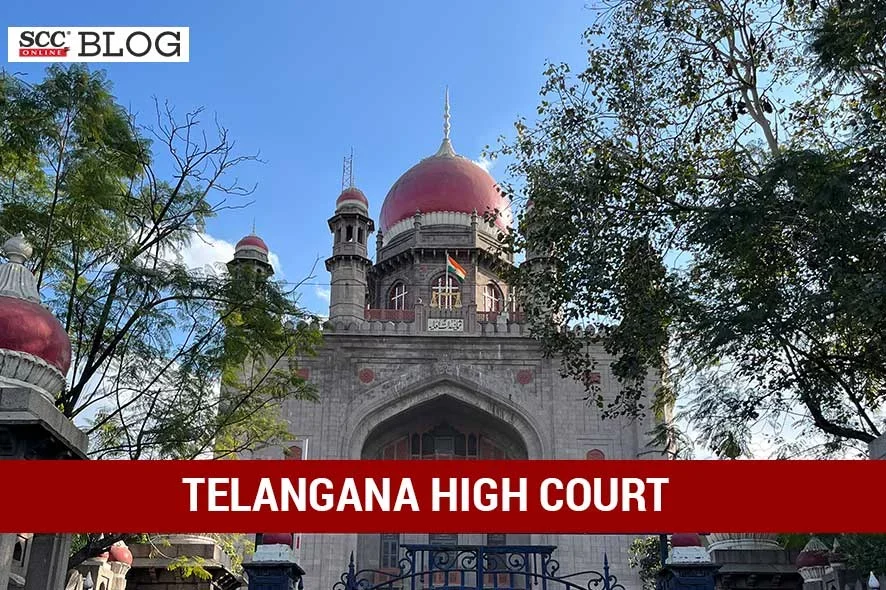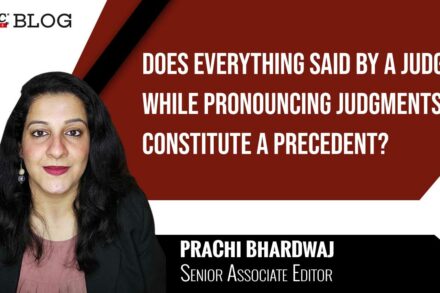Telangana High Court: In a case wherein the Accused 3 (Petitioner) along with the other accused was being prosecuted for the offence under Section 306 of the Penal Code, 1860 (‘IPC’) because the wife of Accused 1 committed suicide, a Single Judge Bench of K. Surender, J.* opined that it was understandable that if there was no illicit intimacy with another person and the husband or the family members were making false allegations against a woman, but, in the present case, the factum of illicit intimacy was not disputed and it could not be said that asking the deceased to refrain from continuing illicit intimacy with Accused 4 would in any manner amount to abetment under Section 107 of IPC. Thus, the Court held that admonishing wife for having illicit intimacy would not in any manner amount to abetting the wife to commit suicide.
Accused 3 along with three other accused persons were being prosecuted for the offence under Section 306 of IPC . The other accused persons were the family members of of Accused 1 and since the deceased had illicit intimacy with Accused 4, the other accused persons allegedly picked up quarrel with the deceased and admonished her. Moreover, the accused 3 along with Accused 1 and Accused 2 were harassing the deceased physically and mentally as she continued illicit intimacy with Accused 4. Further, the allegation against Accused 4 was that he forced the deceased to divorce Accused 1. Accordingly, the police filed a charge sheet stating that in the said circumstances of the deceased having relationship with Accused 4, she was harassed for which reason the deceased committed suicide.
The Court noted that to attract cruelty under Section 498-A of IPC, it had to be proved that the victim was physically or mentally harassed by wilful conduct or harassed for additional dowry by the husband and relatives. The Court further noted that apart from the evidence that the deceased was being admonished for carrying on illicit intimacy, there was no other evidence. Thus, the Court opined that the present circumstances of the deceased having illegal intimacy with Accused 4 and for which reason she was admonished, it did not fall within the definition of cruelty under Section 498-A of IPC. The Court further noted that there were no instances of beating or such acts on the petitioner’s behalf.
The Court opined that “a wife having illicit intimacy with another would in fact have an adverse effect on the husband and family, both personally and in society. The husband could not sit quite if the wife was having illicit intimacy with another person”. The Court opined that it was understandable that if there was no illicit intimacy with another person and the husband or the family members were making false allegations against a woman, but, in the present case, the factum of illicit intimacy was not disputed and it could not be said that asking the deceased to refrain from continuing illicit intimacy with Accused 4 would in any manner amount to abetment under Section 107 of IPC.
The Court relied on Amalendu Pal v. State of West Bengal, (2010) 1 SCC 707, wherein the Supreme Court held:
“Before holding an accused guilty of an offence under IPC, the Court must scrupulously examine the facts and circumstances of the case and assess the evidence adduced before it to find out whether the cruelty and harassment meted out to the victim had left the victim with no other alternative but to put an end to her life. It was also to be borne in mind that in cases of alleged abetment of suicide there must be proof of direct or indirect acts of incitement to the commission of suicide. Merely on the allegation of harassment without their being any positive action proximate to the time of occurrence on the part of the accused which led or compelled the person to commit suicide, conviction in terms of Section 306 of IPC was not sustainable.”
The Court held that admonishing wife for having illicit intimacy would not in any manner amount to abetting the wife to commit suicide. Thus, the Court allowed the petition and further quashed the proceedings against the petitioner.
[B. Nagamani v. State of Telangana, Criminal Petition No. 10951 of 2022, decided on 28-3-2023]
Advocates who appeared in this case:
For the Petitioner: Palle Srinivas Reddy, Advocate;
For the Respondents: S. Sudershan, Additional Public Prosecutor; Venkat Raghu Ramulu, Advocate.
*Judgment authored by: Justice K. Surender






